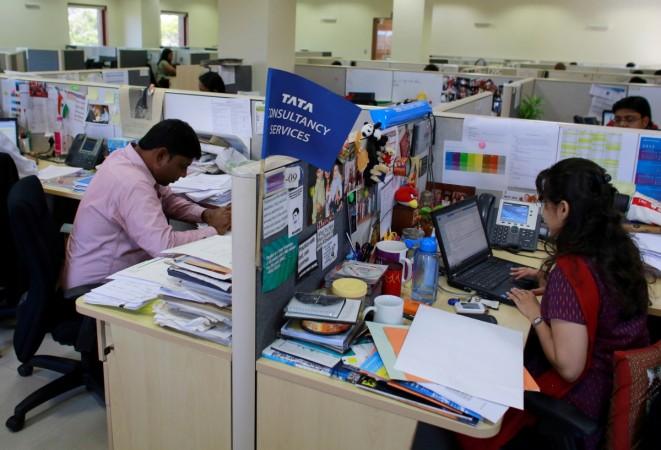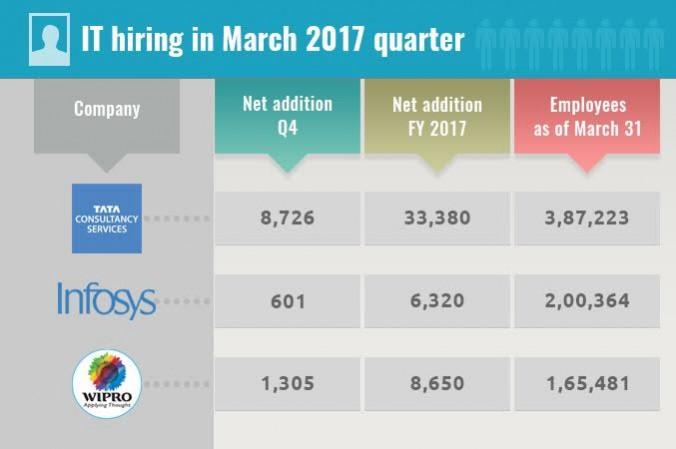
TCS remained the biggest recruiter among the top three IT software services companies in 2016-17, while Wipro pipped Infosys to occupy the second spot. All the three companies have published their recruitment and attrition data, the latest being Wipro that declared its financial performance on Tuesday.
The second takeaway from the data is that large-scale hiring by IT software services companies is a thing of the past.
On a net basis, TCS — India's largest IT services exporter — added 8,726 employees during the March quarter (Q4), followed by Wipro at 1,305 (IT services) while Infosys ended up adding just 601 employees.
The trend in Q4 was similar to the Q3 (December 2016 quarter). The net addition for TCS and Wipro was 6,978 and 4,891 employees, respectively, while Infosys reported a fall of 66.
For the financial year 2016-17, TCS hired 33,380 employees, Infosys 6,320 and Wipro 8,650 on a net basis, data gleaned from the regulatory filings reveal.
As of March 31, 2017, TCS had 3,87,223 employees, Infosys 2,00,364 and Wipro (IT services only) had 1,65,481 employees.

The going is poised to be tough for employees in the IT software services sector, given the headwinds that the companies are facing, especially with recruitment for US clients.
The new norms for issuing H-1B visas has put the companies in a spot, with the US government even accusing Infosys and TCS of "unfairly" cornering a major share of the visas issued, a claim contested by industry body Nasscom in a statement.
"Nasscom would like to clarify on the statements made by the White House on Indian companies getting the lion's share of H1B visas and highlight that in 2014-15, only six of the top 20 H1B recipients were Indian companies," it said in a statement.
TCS and Infosys accounted for 8.8 percent of the total number of H-1B visas issued in 2014-15, Nasscom said. The US government issues 65,000 H-1B visas every year.
The switch from the lottery system to one in which the highest-paid applicants get the visas is expected to be a big setback for Indian IT companies, who derive about 60 percent of their revenues from North America.
If the Indian companies resort to salary hike for their on-site employees in order to become eligible for the visas, their costs are poised to go up, impacting bottomline.














